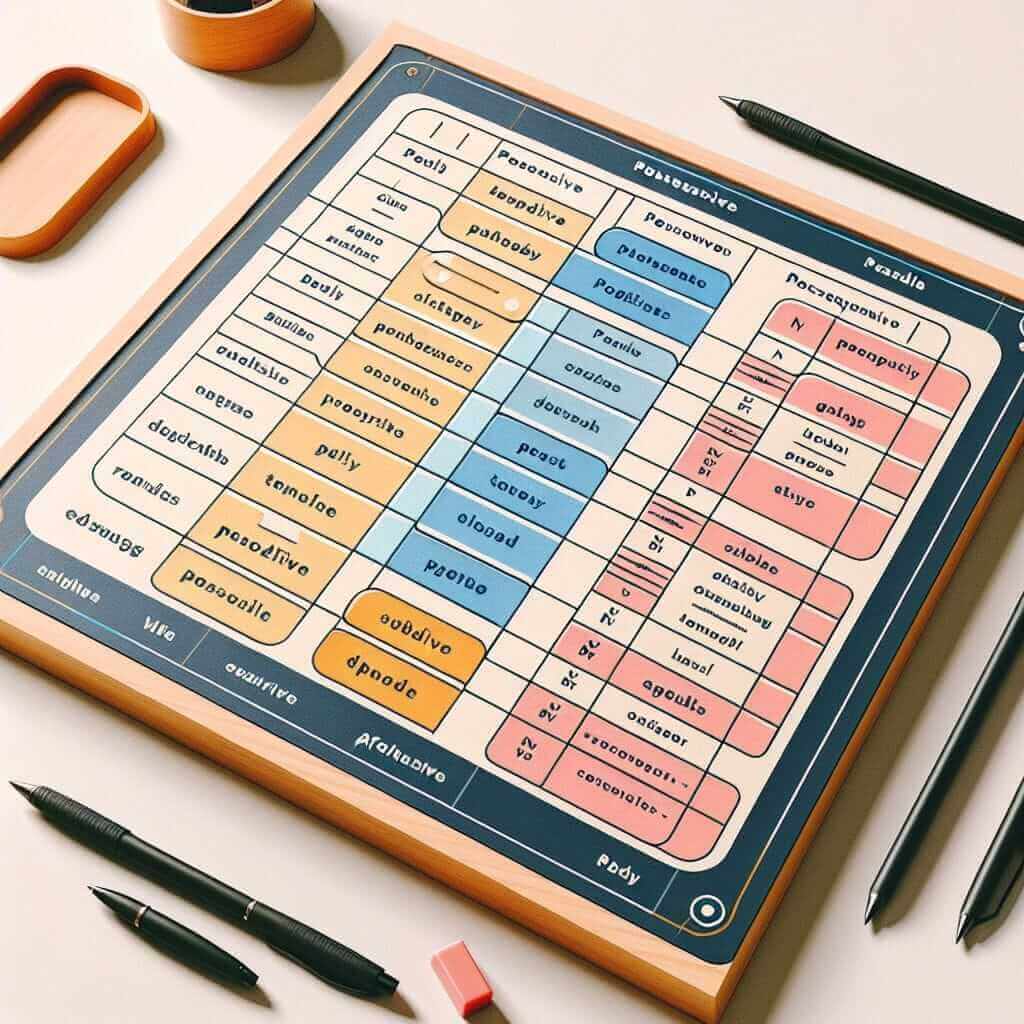Possessive pronouns are essential for indicating ownership or possession in English. They are frequently used in both written and spoken English, making them crucial for achieving a high band score in the IELTS exam. Understanding how to use them correctly will not only enhance your grammar but also boost your confidence in expressing yourself clearly and effectively.
Let’s look at some examples of how possessive pronouns might appear across different sections of the IELTS:
Speaking Part 1:
- Examiner: “Do you have a car?”
- You: “No, I don’t have a car right now, but mine is being repaired.” (mine refers to my car)
Writing Task 1:
- “The blue bar graph illustrates the percentage of men and women working in managerial positions. Its most striking feature is the significant gender gap…” (Its refers to the bar graph)
Listening Section 2:
- “The library will be closed for renovations. Students can collect theirs books before Friday.” (theirs refers to the students’ books)
Reading Passage:
- “Although the two artists share some similarities in their techniques, hers is characterized by vibrant colors, while his focuses on intricate details.” (hers refers to the female artist’s technique, his refers to the male artist’s technique)
Understanding Possessive Pronouns
Possessive pronouns replace nouns modified by possessive adjectives (my, your, his, her, its, our, their). They help avoid repetition and make sentences smoother.
Here’s a breakdown:
| Possessive Adjective | Possessive Pronoun |
|---|---|
| my | mine |
| your | yours |
| his | his |
| her | hers |
| its | its |
| our | ours |
| their | theirs |

Using Possessive Pronouns Correctly
Rule: Possessive pronouns are used independently and do not require a noun after them.
Example:
- Incorrect: This is yours book.
- Correct: This is yours.
Applications in IELTS:
Writing Task 2:
- “Some people believe that technology isolates individuals, while others argue that it strengthens relationships. While both perspectives have their merits, I firmly believe…” (their refers to the perspectives)
Speaking Part 3:
- “In my opinion, the government should invest more in renewable energy sources. Ours is a beautiful country, and we have a responsibility to protect it for future generations.” (Ours refers to our country)
Mastering Possessive Pronouns for a Higher Band Score
1. Show Possession Without Repetition:
- Instead of: “That’s my pen, not your pen.”
- Use: “That’s mine, not yours.”
This demonstrates conciseness and better control over sentence structure.
2. Express Complex Ideas Clearly:
- Instead of: “The success of the project depends on the team’s effort, not just one person’s effort.”
- Use: “The success of the project depends on the team’s effort, not just hers or his.”
This showcases your ability to convey complex ideas effectively using appropriate pronouns.
Common Errors and How to Avoid Them
1. Using Apostrophes:
Possessive pronouns do not use apostrophes.
- Incorrect: Your’s, her’s, their’s
- Correct: Yours, hers, theirs
2. Confusing “Its” and “It’s”:
- “Its” is a possessive pronoun, while “it’s” is a contraction of “it is” or “it has.”
3. Incorrect Placement:
-
Possessive pronouns typically go at the end of a clause or sentence.
-
Incorrect: I borrowed yours the book.
-
Correct: I borrowed the book from yours.
Conclusion
Mastering possessive pronouns is a small but significant step toward achieving your desired IELTS score. By understanding their function, usage, and common errors, you can express yourself with clarity and confidence. Consistent practice and application of these principles will undoubtedly strengthen your grasp of English grammar and contribute to your overall success in the IELTS exam.